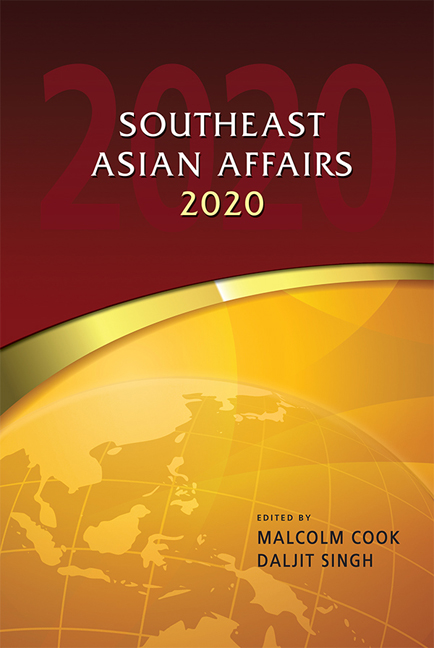Malaysia in 2019: A Change of Government without Regime Change
Published online by Cambridge University Press: 24 November 2020
Summary
The year 2019 was potentially the most important one in Malaysia's political history since the creation of the Federation in 1963. While the historic change in government which ended the sixty-year reign of the Barisan Nasional (BN) coalition government the previous year was indeed momentous, the transition of power would have far less meaning if the promises of broader national transformation are not fulfilled by the new Pakatan Harapan (PH) government led by former prime minister Mahathir Mohamad. PH's 194-page Buku Harapan (“book of hope”) manifesto included sixty pledges, from reforming the Anti-Corruption Commission to ensuring “transparency and robustness of our election system”, along with promises to “abolish oppressive laws” and “enhance the transparency and integrity of the budget and budgeting process”. Other bold promises included the “decentralisation of power to Sabah and Sarawak”, “making government schools the best choice for its people” and for Malaysia to “lead efforts to resolve the Rohingya and Palestine crises.”
It would be easy, then, to highlight the various unfulfilled promises of the manifesto in order to determine 2019 as an abject disappointment for the fledgling PH government. Indeed, it has become a well-worn path for many analysts to measure the new government against its manifesto pledges, especially after the first hundred days of the PH administration and the one-year anniversary of its electoral victory. The slow pace of reform is not only limited to the political sector. The economy remains buffeted by stock outflows and a weak ringgit as global funds signalled their concerns about the lack of reforms. Elina Noor has written that while Malaysia “faced myriad challenges” in terms of foreign and security policies, “not much is likely to change” under Mahathir's “new Malaysia”. There has also been no major reform of education at any level, no progress on promises of decentralization, and only limited attempts to address the issues relating to the Orang Asli (indigenous peoples). Many Malaysians have thus become despondent when discussing national politics in 2019, including those who were initially part of the reform process themselves. Opinion polls throughout the year from the Merdeka Centre (Figure 1) reflect the growing public disappointment with the PH government. In the face of these criticisms, senior PH politicians have spent much of the year defending their track record.
- Type
- Chapter
- Information
- Southeast Asian Affairs 2020 , pp. 191 - 208Publisher: ISEAS–Yusof Ishak InstitutePrint publication year: 2020



